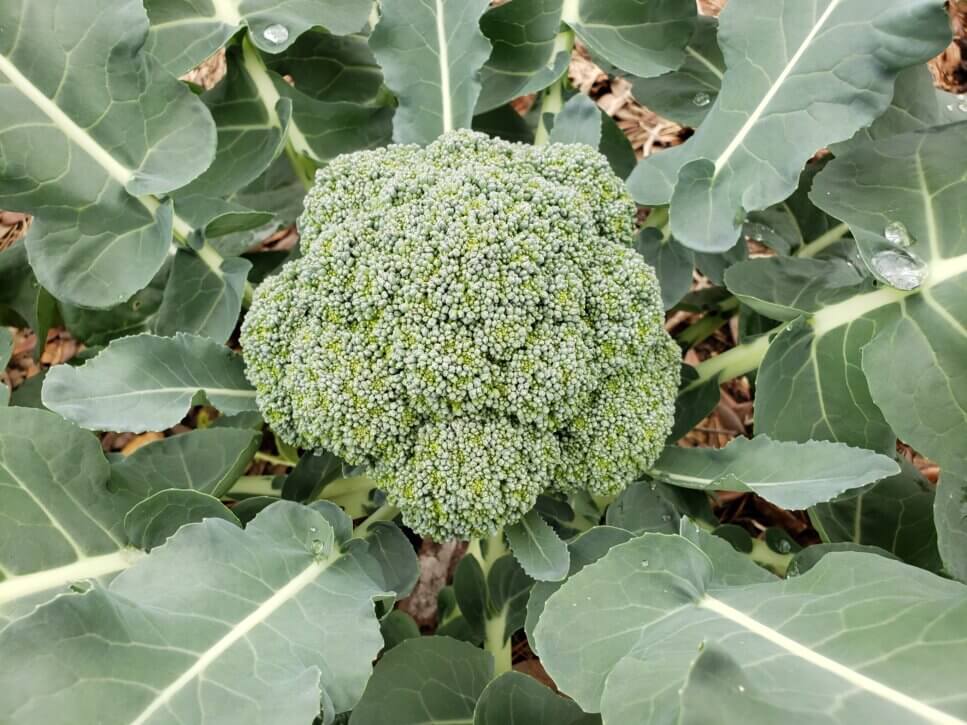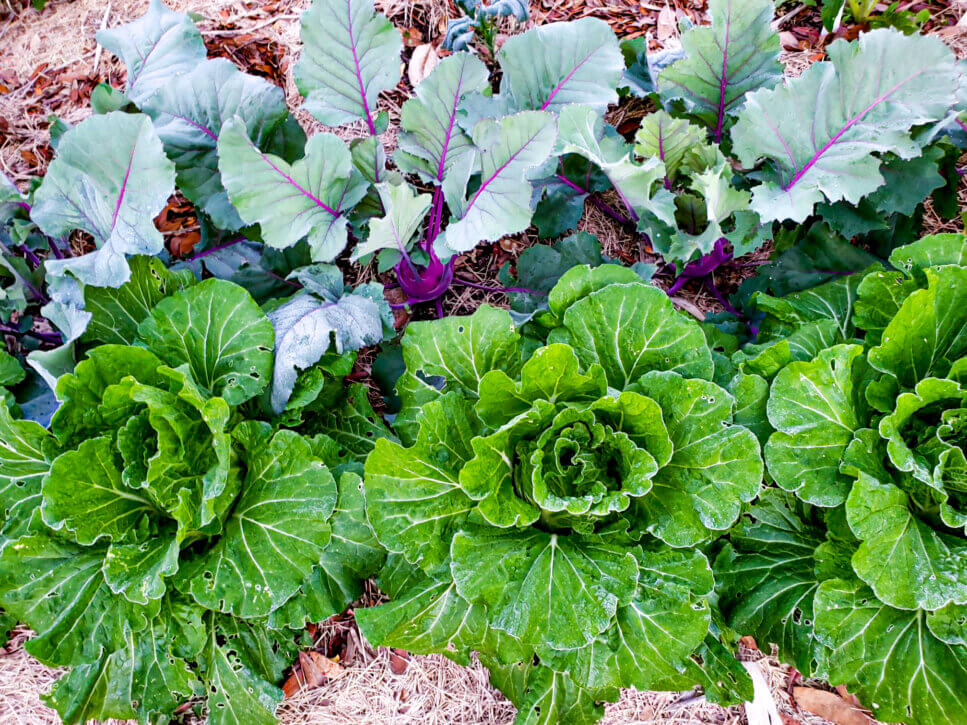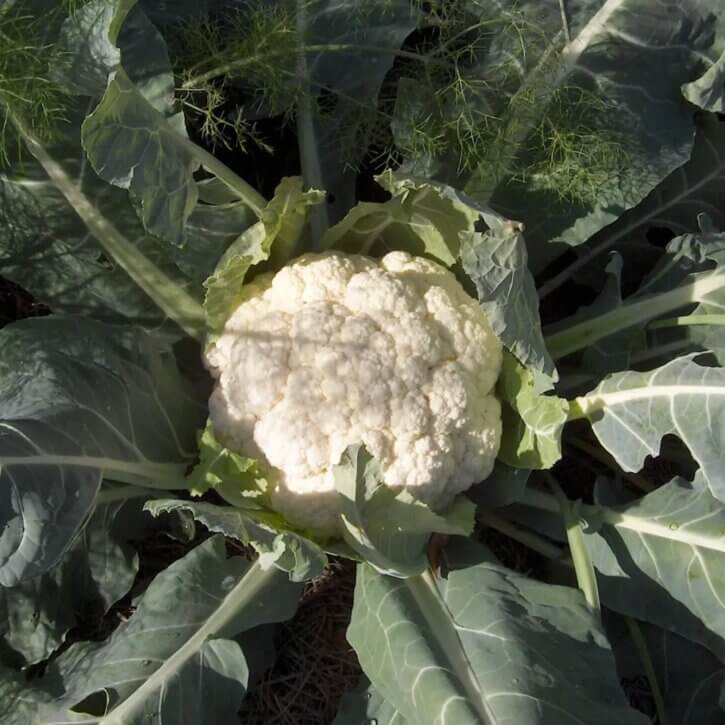
When we think of gardening, we almost always think of spring, but did you know that here in Northwest Florida, the winter months are also the perfect time for growing your own vegetables and herbs? In fact, cool weather gardening can be just as productive as, gardening in the spring. If you’re new to gardening, the winter months serve as the ideal time to get a little dirt on your hands and learn to grow.
“You don’t have to wait until spring to have tasty, fresh and nutritious home-grown vegetables and herbs,” Renee Perry, co-owner of East Hill Edible Gardening said.
Perry explained that cooler temperatures can actually bring a diverse selection of vegetables to choose from. She recommends trying your hand at varieties of brassicas like broccoli, cauliflower and cabbage.
There are also a number of herbs that do well in cooler weather along the Gulf Coast including cilantro, parsley and dill.
“A lot of people think you can’t grow cilantro here, but that’s because of their timing when they’ve tried to grow it. It actually does best when the weather is cooler and it can also withstand some freezing temperatures,” Perry explained.
According to the University of Florida’s Institute of Food and Agricultural Sciences (UF/IFAS) Extension in Santa Rosa County, legumes such as English peas and fava beans also do well in cooler temperatures.
“Irish potatoes are another edible crop that can be planted right now,” Residential Horticulture Agent & Master Gardener Coordinator for the Santa Rosa County UF/IFAS Extension, Joshua Criss said. “Another vegetable that can be planted now is Brussels sprouts. Some of the more Florida-friendly varieties are Jade Cross and Long Island Improved.”

Brussels sprouts can take up to 140 days to mature and don’t like overly warm weather, so winter temperatures in Northwest Florida can provide ideal conditions for growing fresh Brussels sprouts.
Perry explained that edible bulbs such as onions, garlic and leeks; salad greens like lettuces and spinach and European specialties such as radicchio, endive and fennel bulb, also grow well in our region during the winter months.
Garlic chives (also known as Chinese chives) also do well in our region, regardless of the season. They are different from regular chives, which have hollow stems and a mild onion flavor.
“Garlic Chives are different in that they have long, flat green leaves and have mild garlic flavor. They are versatile and easy to add to a wide variety of dishes. They’re also pretty hard to kill and serve as the perfect beginner plant,” Perry said.
When it comes to adding color to your yard or garden in the winter months, there are a number of bedding plants or edible flowers to choose from.
“Some bedding plants that do well in the winter months in Northwest Florida are pansies, violas, petunias, alyssum and snapdragons,” Criss explained.
So, what months are best for cool weather gardening along the Gulf Coast? Our seasons and timing are different from anywhere else in the country so, the right timing, particularly when it comes to what to plant and when, is essential for successful vegetable growing.
“This means that our fall gardening season starts later, and our spring season comes much earlier. However, our winters are much milder than most of the country, so we can enjoy home-grown vegetables yearround rather than having to sit out snow and ice waiting for spring to come,” Perry explained.
Cool weather gardening along the Gulf Coast generally begins around September or October, but every year is slightly different so, it’s wise to hold off planting cool weather vegetables until the temperatures begin to drop.

“Mid-December marks the beginning of Gulf Coast winter, which is shorter and milder than most other parts of the country. In fact, our winter ends and our spring begins in about midFebruary. Many cool weather vegetables can then continue to grow as late as April or May, right alongside the warmer weather vegetables we plant for spring,” Perry said.
Although pests, diseases and weeds don’t typically cause issues in cool weather, one issue to be mindful of is freezing temperatures. While cool weather vegetable plants can survive temperatures below 32 degrees, specific types of plants can survive different degrees of temperature below the freezing mark.
“Broccoli and cauliflower can survive temperatures down to about 25 degrees. Carrots and onions will survive temperatures lower than we’re likely to see here in our area,” Perry explained.
Knowing what temperatures specific vegetables can handle will help you know when to prepare for a freeze. Fortunately, we rarely see temperatures drop below freezing here along the Gulf Coast, even during the winter.
“You can grow plants in a raised bed or a container, of course, but don’t be afraid to plant directly in the ground. In the winter, the roots will be better protected in the ground where the temperature is more constant than in containers or raised beds,” Perry said.
So, whether you have a green thumb or are completely new to gardening, remember that it is possible to have a lush garden filled with bedding plants and edibles here in Northwest Florida, even during the cool, winter months.
For more information on cool weather gardening, visit sfyl.ifas.ufl.edu/santa-rosa or easthillediblegardening.com. Follow @EastHillEdibleGardening on Facebook for seasonal gardening tips and updates on their latest plant varieties.